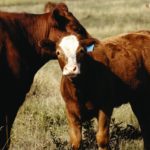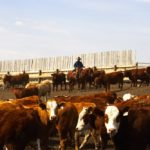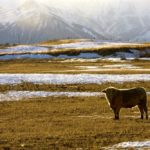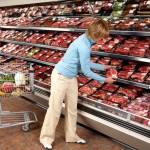
Tag Archives Environmental Issues

Putting a value on forages
A new project by the Canadian Forage and Grassland Association will establish protocols for high-performance forage management
With over 70 million acres of dedicated Canadian cropland and a direct economic value of $5.09 billion, forages are the country’s third-largest crop, just behind wheat valued at $5.2 billion and canola at $7.3 billion. There’s no doubt forages are good for the economy. Perennial forages play an environmental role with the ability to reduce […] Read more

Eastern beef research facilities get an upgrade
Research: News Roundup from the August 2017 issue of Canadian Cattlemen
A $15.5 million injection into the University of Guelph’s Elora research farm is expected to produce a world-leading beef research facility. Meat science researcher and nutritionist Dr. Ira Mandel says the new facility will allow the university to amalgamate the beef research herds from New Liskeard and Guelph. “We’re going to have a much larger […] Read more

Environmental goods and services offer more questions than answers
Research on the Record with Reynold Bergen
The beef industry takes pride in how forage, grazing and beef production benefit the environment. These environmental goods and services (EG&S) include carbon sequestration, plant and wildlife habitat, reduced soil erosion, watershed recharging, scenery, etc. While consumers pay for beef, the EG&S are free. For instance, many ducks need grasslands and wetlands to nest and […] Read more

Locking down feedlot ammonia emissions
Sustainability: News Roundup from the May 2017 issue of Canadian Cattlemen
Innovative research is reshaping what is known about ammonia and related emissions from feedlots. And that new knowledge may help the industry to adjust its management, shape and react to public policy more effectively. “Livestock are significant emission contributors,” says Dr. Sean McGinn of Agriculture and Agri-Food Canada, a long-time researcher in the emissions area. […] Read more

Drilling down on carbon sequestration
New 10-year study looks for a more accurate formula to calculate the carbon-swallowing value of native grass
Ranchers in all three Prairie provinces are taking part in a decade-long study to assess the cumulative effect of different grazing systems on carbon sequestration and other ecological benefits from a working ranch. In each province, 10 pastures managed under adaptive multi-paddock (AMP) grazing systems for at least 10 years will be paired with neighbouring […] Read more

‘Change’ is the watchword in a warming world, says researcher
Longer summers and milder winters sound nice, but even the pluses come with some negatives
How will the Canadian cattle industry fare if global temperatures continue to rise? Count a reduced feed demand, a longer grazing season, and higher forage production among the benefits — but also expect more extreme weather, pests, and transport headaches, according to University of Manitoba research scientist Kim Ominski. “We know the future of our […] Read more

The case for carbon storage
Alberta grasslands study to help develop policies
Good-news stories for beef producers are beginning to flow out from a massive dataset collected during a three-year carbon benchmarking study done to evaluate the effects of long-term grazing on native grasslands of Alberta. Some of the findings won’t surprise beef producers who see the positive effects first hand, but this is the first time […] Read more

CCA Report: Preparing for climate change
From the November 2016 issue of Canadian Cattlemen
In October, I travelled to New Zealand for the annual meeting of the presidents and chief executive officers of the International Beef Alliance (IBA). Comprised of the national organizations representing beef cattle producers in Australia, Brazil, Canada, Mexico, New Zealand, Paraguay and the United States, the IBA accounts for 46 per cent of the world’s […] Read more

Helping consumers make an informed choice
Advocacy: News Roundup from the October 3, 2016 issue of Canadian Cattlemen
During the Canadian Beef Industry Conference (CBIC), I was asked to do an interview on CBC’s Calgary Eyeopener on the use of growth hormone implants in the beef industry. The impetus for the interview followed a retailer panel discussion on “Beef Demand” — a pillar of the National Beef Strategy — focused on “what consumers […] Read more
We live in a vulnerable world
It is spring and the time when all Canadian farmers think of green grass, planting, awakening forests, early rains and trickling rebirth. This is our land and our livelihood and no one understands it better. Our soil, so firmly attached to our working boots, is the foundation of our existence and the reason for the […] Read more



